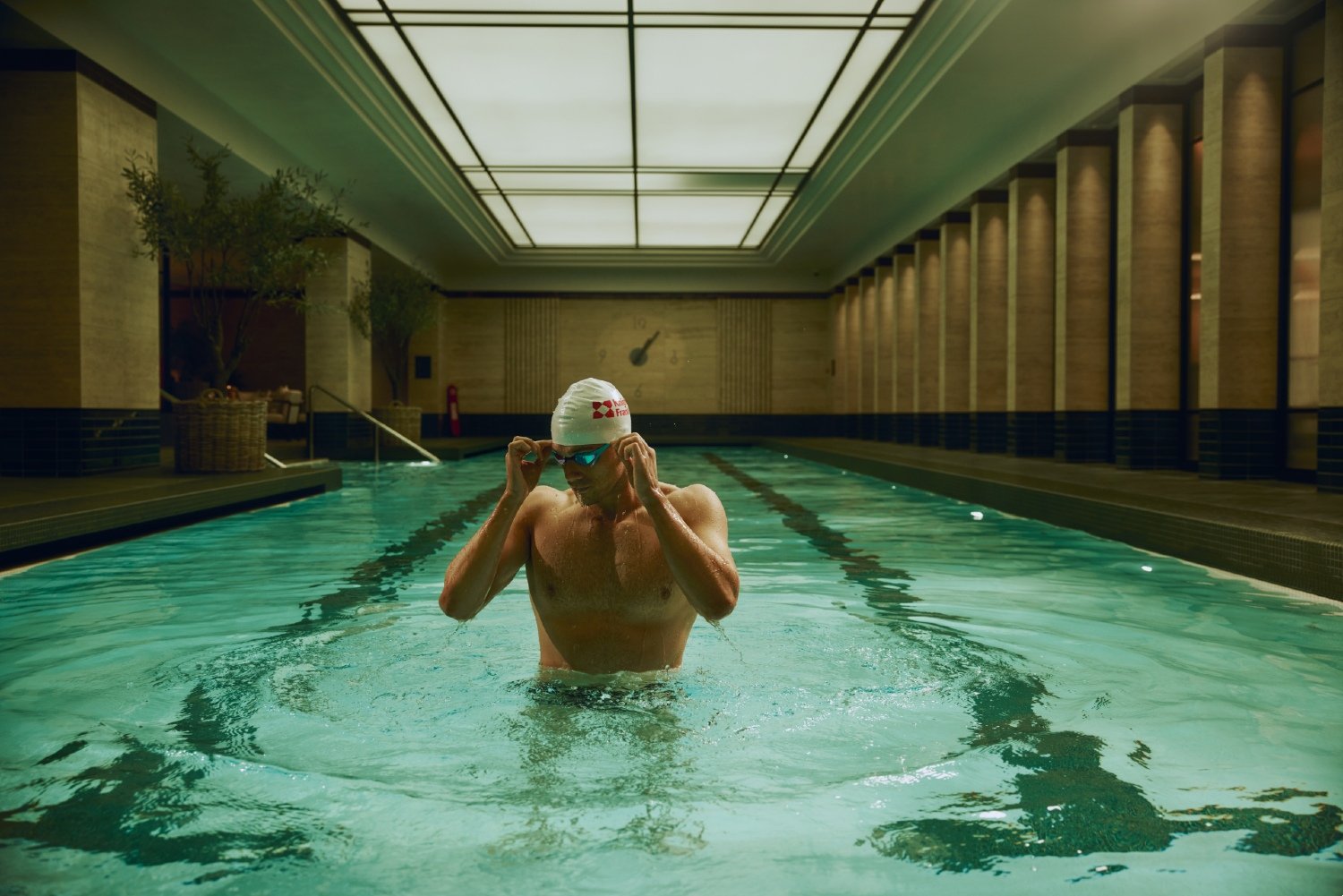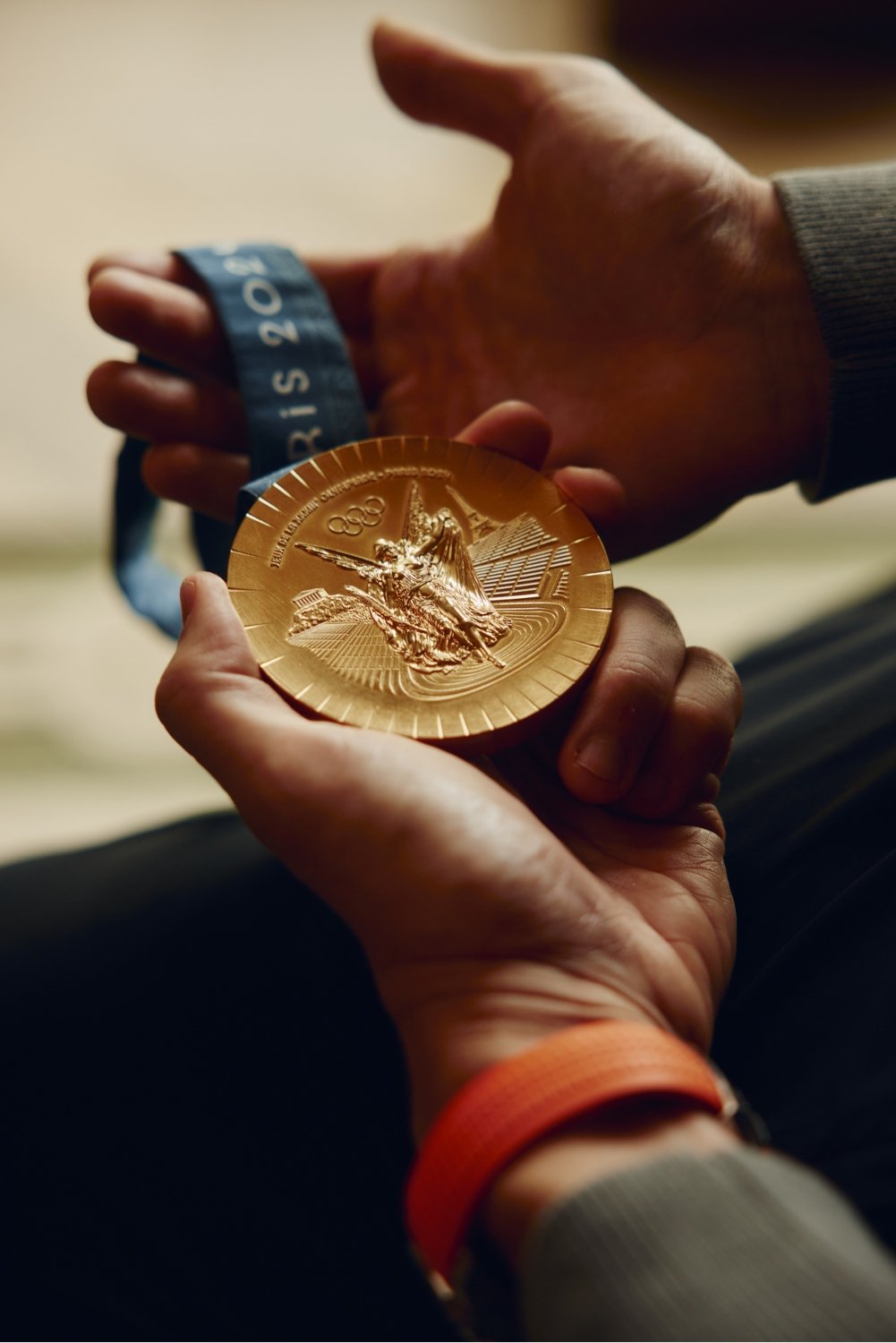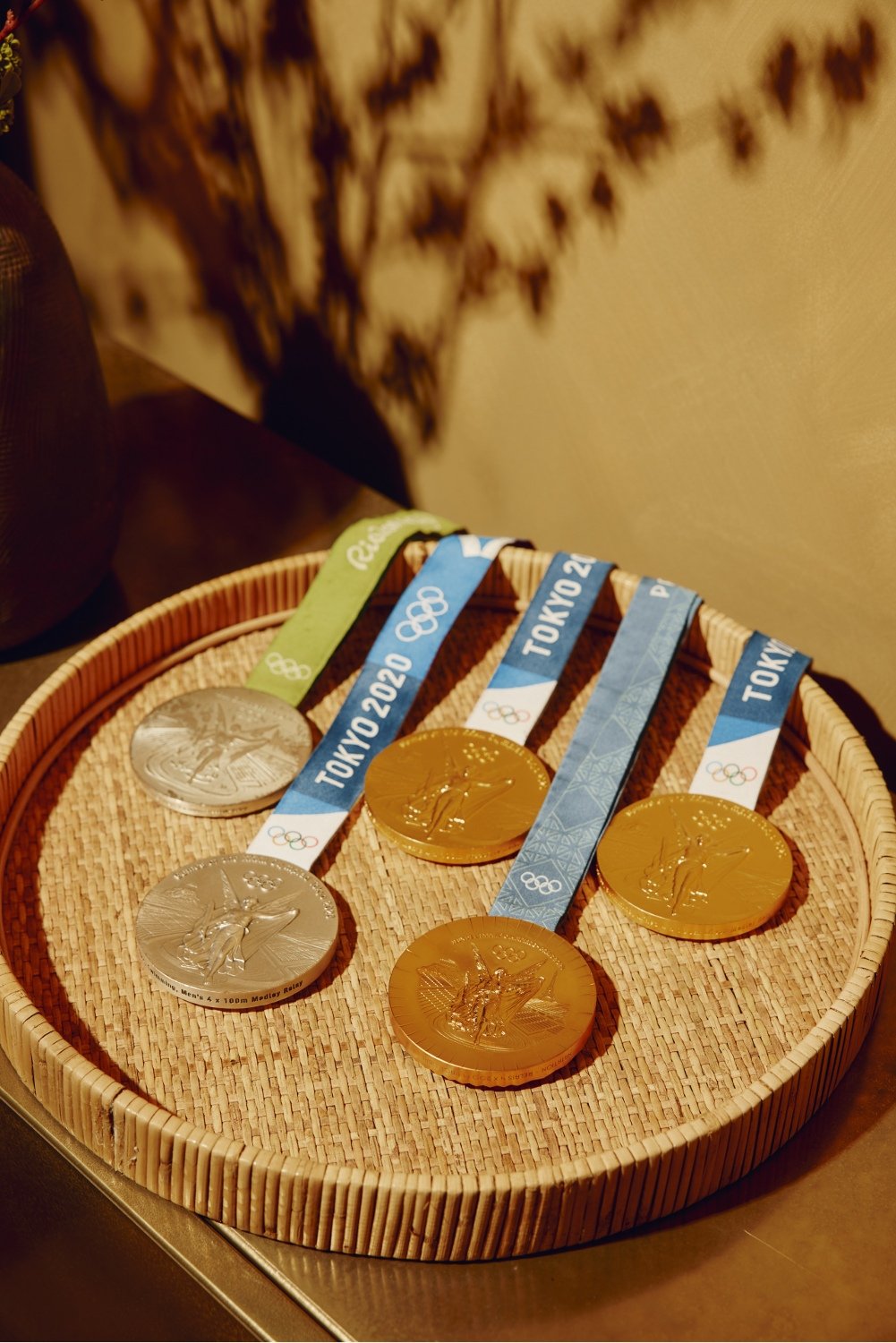Olympic ambition: Team GB swimmer James Guy talks property
Team GB swimmer James Guy has won six Olympic medals, including gold at the 2024 Paris Olympics. He’s also worked in two Knight Frank offices. Here, he explores how an Olympian’s mindset can be applied to the world of property

There’s a quiet intensity to James Guy, the 28 year old Olympian, born in Bury, north of Manchester. When he arrives for our interview at Chelsea Barracks in central London, I’m struck by his height – and his energy. He’s charming and debonair, but laser-focused at the same time. But what else should you expect of a Team GB athlete who’s won three gold and three silver Olympic medals over the course of an eight year swimming career?
Guy’s record is extraordinary, as was his performance at the 2024 Paris Olympics. He made history as part of Team GB’s first ever quartet to defend their Olympic title in the men’s 4x200m freestyle.
However, swimming isn’t Guy’s only focus. While he has no plans to retire just yet, a career after sport is on his mind and property is a contender. What can an Olympian bring to the world of real estate? Discipline, a competitive streak and a desire to excel, he says.
I’ve always had an interest in the world of property.
I remember watching property shows on TV as a teenager. The listings, the valuations, the fees; everything about them fascinated me. I also remember thinking to myself, “I could get into this when I’m older” and the thought’s always been there. I’ve worked in Knight Frank’s Knightsbridge and Bath offices and both experiences have been really fascinating.
My earliest swimming memory is taking part in the Young Olympians Gala.
I was nine at the time and I swam in the 50 metres butterfly. That’s when my love for the sport really kicked in. I won my race and started to really believe that I could push my body and become exceptional. The memory, and the nine year old James Guy, just never really left me.
Winning my first Olympic medal at the Rio Games in 2016 was something I had always wanted to achieve.
When we dived into the pool our team was fourth and I brought us up to second place. The USA won with Michael Phelps in the last leg. I’d like to think that if we had been neck-and-neck, I’d have gotten past him, but we were too far behind at the end of the day. But, to win silver at the Olympics aged 20 was a dream. I’d been dreaming of that moment since I was a kid.
In the Olympics or the World Championships, you never try to win a medal.
If you perform at your best, it will always come to you. You never tell yourself “go out there and win this” because then it doesn’t happen. Instead, it’s about chasing your personal best. I ask myself “what can I do on the day to get the best time?” It’s about training, conditioning and making sure you’re in peak form. If you can do that, then the medal will come afterwards.


The World Championships in 2017 was the most challenging competition I’ve been in.
I swam 13 times in one week and the twelfth swim was a relay race. Pacing yourself for something like that is really hard – in every race you want to be firing on all cylinders for your teammates. And you know that if you don’t do your bit, they’re not going to get a medal. That was all about maximising performance through each round. You need to make sure that you do enough, but not too much.
What we do as athletes isn’t normal – training every day and being so disciplined.
You’re pushing yourself morning and night, so you want to make sure that you’re getting the mental health support that you need. Competitions like the Olympics are so big, when they’re over you can feel quite empty. I had ‘Olympic blues’ after Rio. You come back from the Games and you’re drained. You’ve been preparing for so long, you stop and then you’ve got nothing planned. I see a psychologist and a sports psychologist who help me to stay healthy – I find having a routine is helpful for me too.
The whole team went to Paris confident that we’d perform.
Personally, I was seeing good results in training and doing things in the pool that I’d never done before. I was also where I wanted to be in terms of my front crawl – and I’m a former world champion in that event – so I knew I had a shot.
I can’t swim for fun, any more. As soon as I’m in the water, I’m ‘on’ – even on holiday. I might hop in the pool to cool off a bit, but that’s it.
Before a race I always try to stay relaxed.
I listen to music – it keeps me calm. The more relaxed I am, the better I swim. When I get tense and nervous, it doesn’t work. Preparation helps a lot too; you don’t want to dive in with no plan in your head.
In training, I rehearse exactly what I’m going to do.
I think about how I’m going to breathe, kick, turn, how many strokes I’m going to take and so on. If I know what I’m going to do beforehand, I can be confident that I’m going to swim well. It’s the best way to cope with the pressure, especially if you’re swimming in a team and your teammates are depending on you to play your part.
Being an athlete is about commitment and working at the highest level.
In property, you have to do the same, especially when the market or the situation changes. I work in a competitive environment every single day, so when I do eventually decide to hang up the goggles and the swimsuit, I’d like to use these skills in a similarly competitive environment. In property, getting good results for your clients is what counts. I’d like to be the best agent in the office while I’m at it. That’s just how my brain works.

The sports desk at Knight Frank
The sports desk is a specialist team at Knight Frank, established by Alexander McLean in 2018. McLean’s team provides an expert, single contact point for professional athletes and sports people to support them with the specifics of all of their property requirements.
“Often, we’ll first work with athletes who are moving to the UK to train or join a new club and in need of a rental property,” McLean explains. “With professional footballers, for example, we often start to work with them on their property needs during the annual transfer window.”
With a new client on board, the next step is often to assist with a purchase, or to work with clients to find appropriate property investments to provide long-term income. “Sports people often have a very short timeframe in which to invest, because a professional athlete’s career can end in their early 30s,” McLean says. “There also aren’t a huge amount of options for lending. Most sports people can only borrow finance for the duration of their contract, which might only be a few years’ long, so specialist support with this is valuable too.”
Clients with such unique needs benefit from The sports desk’s dedicated focus – and its international reach. “We now handle around 70 transactions a year for athletes,” adds McLean. “While we offer a single point of contact, we can also bring to bear the whole of Knight Frank’s global network for our clients.”
To speak with the sports desk, please contact alexander.mclean@knightfrank.com



